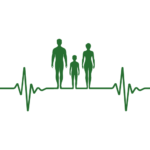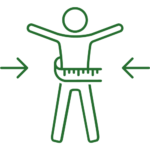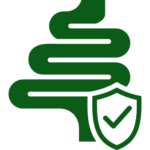WHAT IS IT?
Asthma is a condition in which your airways narrow, swell, and produce extra mucus. This can make breathing difficult and trigger coughing, wheezing and shortness of breath. For some, asthma is a minor nuisance. For others, it’s a major problem that can lead to a life-threatening asthma attack.
Exposure to substances that trigger allergies (allergens) and irritants can cause signs and symptoms.
Asthma triggers include:
- Airborne allergens, such as pollen, dander, mold, and dust
- Respiratory infections, such as the common cold
- Physical activity (exercise-induced asthma)
- Cold air
- Air pollutants and irritants, such as smoke
- Strong emotions and stress
- Sulfites and preservatives added to some foods and beverages
- Reflux from gastroesophageal reflux disease (GERD)
SYMPTOMS OF ASTHMA
- Shortness of breath
- Chest tightness or pain
- Trouble sleeping caused by shortness of breath or coughing
- A whistling or wheezing sound when exhaling
- Coughing or wheezing attacks worsened by a cold or the flu
WHAT TESTS TO EXPECT
- Spirometry. This test estimates the narrowing of your bronchial tubes by checking how much air you can exhale after a deep breath and how fast you can breathe out.
- Peak flow. It measures how hard and fasts you can breathe out. Lower than usual readings are a sign your lungs may not be working as well as they should be.
TREATMENT OF ASTHMA
Treatment usually involves learning to recognize your triggers, taking steps to avoid them, and tracking your breathing to make sure your daily asthma medications are keeping symptoms under control. In case of an asthma flare-up, you may need to use a quick-relief inhaler.
Allergy medications
If your asthma is aggravated by allergies, allergy medications — including allergy shots, antihistamines, and decongestants — may help control symptoms.
LIFESTYLE
- Use your air conditioner. Air conditioning reduces the amount of airborne pollen from trees, grasses, and weeds that find its way indoors. It also lowers indoor humidity and can reduce your exposure to dust mites.
- Decontaminate your decor. To reduce dust in your home, encase pillows, mattresses, and box springs in dustproof covers.
- Clean regularly. Clean your home at least once a week.
- Maintain optimal humidity. If you live in a damp climate, use a dehumidifier.
- Reduce pet dander. If you’re allergic to dander, avoid pets with fur or feathers.
- Cover your nose and mouth. If your asthma is worsened by cold or dry air, wear a face mask.
- Get regular exercise. Regular exercise strengthens your heart and lungs, which helps relieve asthma symptoms.
Excerpt From: The Mayo Clinic. “Mayo Clinic A to Z Health Guide”.






































































